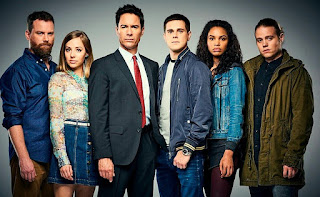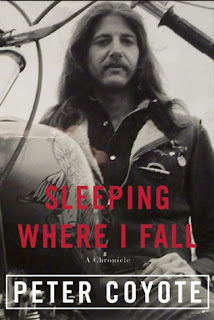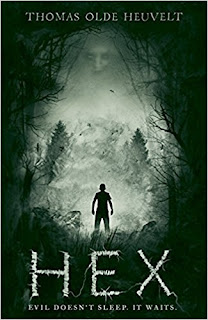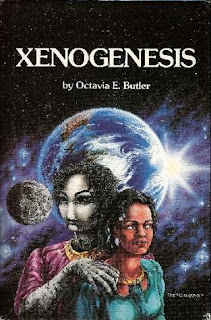The Dream
So I am having this dream. Or I am so having a dream? Anyway, weird fucking dream, like Coscarelli meets Happy! via those explaining videos where someone talks very fast while drawing what is going on while an obnoxiously and totally unnecessary music plays joyfully in the background. Although that was mostly a way to graphically depict my inner thoughts... in the dream... so that I could understand what I was thinking. The dream concerned altered states of mind, biology, physics, logic, anything really.
Everything was altered, but also very real. It was all real. One moment I am doing something horrible, like killing innocent bystanders by throwing them from a tall place onto other people that were trying to make me stop killing people or pushing terrified (and annoying) kindergarten kids out of my way, my wife in tow, enjoying every second, the other I am home, waiting for the cops to show up, amazed that I got away, only for someone to force very strong psychiatric meds down my throat and make me realize that it was all a fantasy of someone who isn't even who I thought I was. Then I wake up and I am a terrible (and amusing) force of evil trying to understand both who I am and why do the people that force feed me medicine look like my parents, while they clearly are not. I terrify them and so I can tell them what to do, maybe they won't discover I am as terrified of not knowing what the hell is going on. But I will be having fun, as a God given right.
And then it switches again, with a good friend arranging the trip that will take us out of the country, on a touristic toury tour that me and the wife will use to escape the authorities that no doubt are looking for us right now because we killed all those people in probably the very tour we are organizing because they were standing in our way and we were bored. And in the dream I realize that every such permutation of reality is part of the dream, but also very real. I could stop at any moment and that would be reality for a while. So I switch again, I escape, barely conscious of where or who I am, I jump some stairs, a dog is chasing me, but I know he knows me and wants to play, I get out of the building, pretend to be a PTSD affected veteran to get clothes and stuff, including guns, until someone asks me where I served. So I just have to take out the guns and commandeer a vehicle. The fact that the people in the car are sexy women who can't help feeling terrified and also strangely excited by this display of violence is surely coincidence. And then cops show up and the girls run away. I shoot after them until the bullets run out, while the cops are weirdly apathetic, standing next to me on the hood of their car. "Are you done?" they ask, and I sigh and acknowledge and give up, allowing to be handcuffed and thrown into a car that doesn't seem to be a police car. And a woman is there, old, crow feet eyes, one of those people who can laugh at anything, you know, smoking nonchalantly.
I realize it is all part of the great machine that revolves reality, like one of those game machines that gives you a prize on TV when they rotate it, only it seems the real good prizes are never chosen. And I know now what this is and I look into her eyes and I know that she knows I know, but maybe she could stop smoking, since it irritates me, and she laughs. Told you she could laugh at anything. I am proud of not panicking, of taking it all in and being cool with it, I can see the old woman nodding appreciatively, too. "So what now?", I ask, but I already know the answer.
It is clear to me that anything could happen, and it does happen, the whole world dies and I get that fast talking graphic that explains why everything alive is not alive anymore except one thing, me. And it doesn't make any sense at all other than what if it could happen and if it could happen why wouldn't it and I am it, the thing that can breathe what nothing else can and still draw fancy pictures of what happened while explaining itself how it survived. But then surely I could animate one of the dead, just for fun, so it can be irritated (as I was) at how fast I am talking when depicting my inner monologue. And I try variations on the same theme, all wonderful and terrifying and apparently dangerous, only that I can change them even after something bad happened to me, so they're not. I especially enjoy the ones where I am enjoying what I am doing, even if it doesn't seem like something anyone would enjoy. I congratulate myself for choosing a reality I enjoy what I am doing so much that I need to congratulate myself about it.
I am trying to describe the experience as accurately as possible while fully knowing that the memory of it is fading and that even if I would still be part of it I couldn't express it fully. It stank of multidimensionality, it purposely lacked any purpose, anything at all was possible and it was, overlapping and existing at the same time and space. It had a soundtrack, and even if I knew, for example, that Come Together was taken directly from my recent viewing of Justice League, I also knew that it had a completely different meaning in this context, except maybe for the YouTube bots who would flag my whole life as copyrighted. There was no moral to it, no catharsis, no epiphany. It refused definition and I relished it. It was the polar opposite of a spiritual experience: no hope, but infinite potential, no lessons to be learned, but filled to the brim with experience, no gods other than myself.
I could have been anyone, anything, everything, but I chose the reality where I would wake up, recognize the room, the laptop, and blog about it. Maybe only then see life extinguished, just for the kicks of knowing that everything I spent horrible confused lonely moments (while aware of the singleminded and boring nature of this chosen reality) typing was pointless, no one would read it, even attempt to understand it and fail miserably, because the Internet would still work for a bit, but everybody would be dead. Fortunately it was all a dream, and you will read and fail to understand this post, not even the least bit grateful for being all alive and shit and not the punchline to a joke that I alone (pardon the pun) would find funny.
Everything was altered, but also very real. It was all real. One moment I am doing something horrible, like killing innocent bystanders by throwing them from a tall place onto other people that were trying to make me stop killing people or pushing terrified (and annoying) kindergarten kids out of my way, my wife in tow, enjoying every second, the other I am home, waiting for the cops to show up, amazed that I got away, only for someone to force very strong psychiatric meds down my throat and make me realize that it was all a fantasy of someone who isn't even who I thought I was. Then I wake up and I am a terrible (and amusing) force of evil trying to understand both who I am and why do the people that force feed me medicine look like my parents, while they clearly are not. I terrify them and so I can tell them what to do, maybe they won't discover I am as terrified of not knowing what the hell is going on. But I will be having fun, as a God given right.
And then it switches again, with a good friend arranging the trip that will take us out of the country, on a touristic toury tour that me and the wife will use to escape the authorities that no doubt are looking for us right now because we killed all those people in probably the very tour we are organizing because they were standing in our way and we were bored. And in the dream I realize that every such permutation of reality is part of the dream, but also very real. I could stop at any moment and that would be reality for a while. So I switch again, I escape, barely conscious of where or who I am, I jump some stairs, a dog is chasing me, but I know he knows me and wants to play, I get out of the building, pretend to be a PTSD affected veteran to get clothes and stuff, including guns, until someone asks me where I served. So I just have to take out the guns and commandeer a vehicle. The fact that the people in the car are sexy women who can't help feeling terrified and also strangely excited by this display of violence is surely coincidence. And then cops show up and the girls run away. I shoot after them until the bullets run out, while the cops are weirdly apathetic, standing next to me on the hood of their car. "Are you done?" they ask, and I sigh and acknowledge and give up, allowing to be handcuffed and thrown into a car that doesn't seem to be a police car. And a woman is there, old, crow feet eyes, one of those people who can laugh at anything, you know, smoking nonchalantly.
I realize it is all part of the great machine that revolves reality, like one of those game machines that gives you a prize on TV when they rotate it, only it seems the real good prizes are never chosen. And I know now what this is and I look into her eyes and I know that she knows I know, but maybe she could stop smoking, since it irritates me, and she laughs. Told you she could laugh at anything. I am proud of not panicking, of taking it all in and being cool with it, I can see the old woman nodding appreciatively, too. "So what now?", I ask, but I already know the answer.
It is clear to me that anything could happen, and it does happen, the whole world dies and I get that fast talking graphic that explains why everything alive is not alive anymore except one thing, me. And it doesn't make any sense at all other than what if it could happen and if it could happen why wouldn't it and I am it, the thing that can breathe what nothing else can and still draw fancy pictures of what happened while explaining itself how it survived. But then surely I could animate one of the dead, just for fun, so it can be irritated (as I was) at how fast I am talking when depicting my inner monologue. And I try variations on the same theme, all wonderful and terrifying and apparently dangerous, only that I can change them even after something bad happened to me, so they're not. I especially enjoy the ones where I am enjoying what I am doing, even if it doesn't seem like something anyone would enjoy. I congratulate myself for choosing a reality I enjoy what I am doing so much that I need to congratulate myself about it.
I am trying to describe the experience as accurately as possible while fully knowing that the memory of it is fading and that even if I would still be part of it I couldn't express it fully. It stank of multidimensionality, it purposely lacked any purpose, anything at all was possible and it was, overlapping and existing at the same time and space. It had a soundtrack, and even if I knew, for example, that Come Together was taken directly from my recent viewing of Justice League, I also knew that it had a completely different meaning in this context, except maybe for the YouTube bots who would flag my whole life as copyrighted. There was no moral to it, no catharsis, no epiphany. It refused definition and I relished it. It was the polar opposite of a spiritual experience: no hope, but infinite potential, no lessons to be learned, but filled to the brim with experience, no gods other than myself.
I could have been anyone, anything, everything, but I chose the reality where I would wake up, recognize the room, the laptop, and blog about it. Maybe only then see life extinguished, just for the kicks of knowing that everything I spent horrible confused lonely moments (while aware of the singleminded and boring nature of this chosen reality) typing was pointless, no one would read it, even attempt to understand it and fail miserably, because the Internet would still work for a bit, but everybody would be dead. Fortunately it was all a dream, and you will read and fail to understand this post, not even the least bit grateful for being all alive and shit and not the punchline to a joke that I alone (pardon the pun) would find funny.

 There is this TV show out there, called
There is this TV show out there, called  I think
I think 

 I've vaguely heard about
I've vaguely heard about  Imagine a space pulp "escape from a room" story and you get
Imagine a space pulp "escape from a room" story and you get 

 Hungry
Hungry  While
While  This book is NOT about vampires. For a long time I avoided reading it because the title so suggested some steamy vampire young adult crap. But no! The book is a hard sci-fi book about the end of humanity, written in a style that I can hardly imagine any man would be able to adopt. And that's a good thing.
This book is NOT about vampires. For a long time I avoided reading it because the title so suggested some steamy vampire young adult crap. But no! The book is a hard sci-fi book about the end of humanity, written in a style that I can hardly imagine any man would be able to adopt. And that's a good thing.


